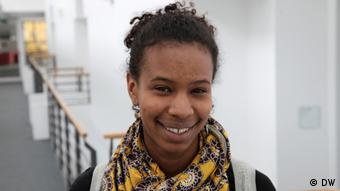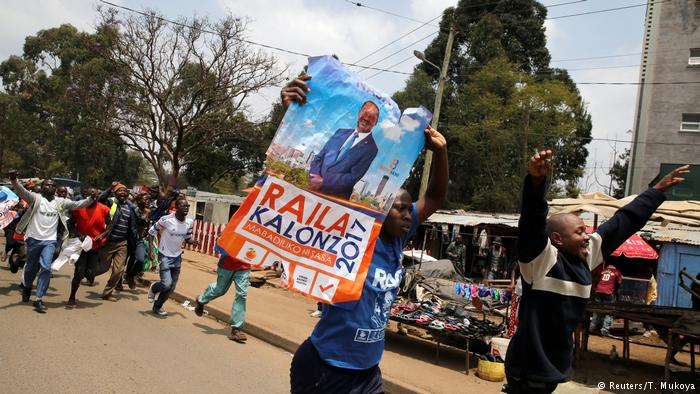A Supreme Court decision to hold new elections – that’s something that nobody expected. Possibly not even Kenya’s opposition, which had initially ruled out the possibility of taking the legal path.
It’s strange how, all of a sudden, the people who wanted nothing more than for things to return to “business as usual” are now gripped by the excitement of fresh elections – myself, I guess, included. For one week after August 8, businesses were shut out of fear of protests and riots. For one week, walking through traffic-free downtown Nairobi felt like a stroll in the park, as the country waited for the opposition to adopt a final position on the elections.
But now it seems the country has been gripped by this new turn of events. A Supreme Court that decides in favor of the opposition and calls the re-election of the incumbent president null and void – that’s unheard of! Especially after the courts had ruled against the opposition time and again in the not too distant past. Is this a sign that Kenyan courts can be truly independent? Has democracy really won? We’ll only find out in 60 days when the country will go to the polls again and the electoral process will hopefully be deemed credible, free and fair by all sides.
What the move by the Supreme Court does, however, show, is that once again most people who predicted the political outcome of this were proven wrong. In an age in which Donald Trump wins the US presidency as an anti-establishment figure and Brexit turns European politics on their head, such a turn of events probably shouldn’t be a surprise.

And while this is probably the worst time to make any political predictions, my feeling is that this ruling has injected a disillusioned Kenyan public with a fresh burst of energy. For many Kenyans, this could be the proof that a change in political attitude is possible. That change could come now and not just in five years when the country is expecting a full scale reshuffle of political alliances. To clarify this: I’m speaking of a change in mindset and not just or not necessarily through a change in leadership. Leadership and particularly the office of the president is not untouchable. It can be questioned by the courts, by parliament, and in this case even by the electorate.
For both Raila Odinga and Uhuru Kenyatta, this was supposed to be the last run for the presidential office. The year 2022 is expected to mark the end of the longstanding Odinga vs. Kenyatta rivalry. Next time round, an entirely new set of top contenders should step onto the playing field. For many Kenyans, those had been the elections to look forward to. But now it seems that everything is possible.
The court ruling is, of course, also a win for opposition supporters. Especially those who took to the street: the protesters in Kisumu, those in Kibera and Mathare, the people who belong to Kenya’s lower income bracket and have felt disenfranchised and cheated by the political elite for so long.
As the celebrations and shock subside and reality sets in, the next question is, who will oversee the fresh elections? The distrusted electoral commission? And if we assume that the errors of the last presidential election were truly errors and were not deliberate misconduct, will polling officers be up to the task of getting things right this time around?
Once again we’ll see discussions around the credibility and the ability of electoral commission executives. The printing of presidential ballot papers could once again be a matter of debate and the issue of who has access to the electronic voting system and whether it can be hacked or compromised also needs to be resolved. More transparency, a better division of roles and a quicker response to queries; this is what the next election process needs. tghere’s a lot of work to be done.
For the next 60 days, however, all we can hope for is that celebrations remain celebrations, protests remain peaceful and that name-calling and political fighting remains confined to board rooms and political discussions.
Addressing the nation after the ruling, incumbent president Uhuru Kenyatta said he respected the decison, although he did not agree with it. He reminded Kenyans that their neighbors will remain their neighbors, no matter what their political or ethnic affiliations. My hope is that this is not only political rhetoric, but that Kenyatta, his party and all other parties involved stand by those words and allow the country to prepare the ground for fresh elections.
Author: Sella Oneko / DW



